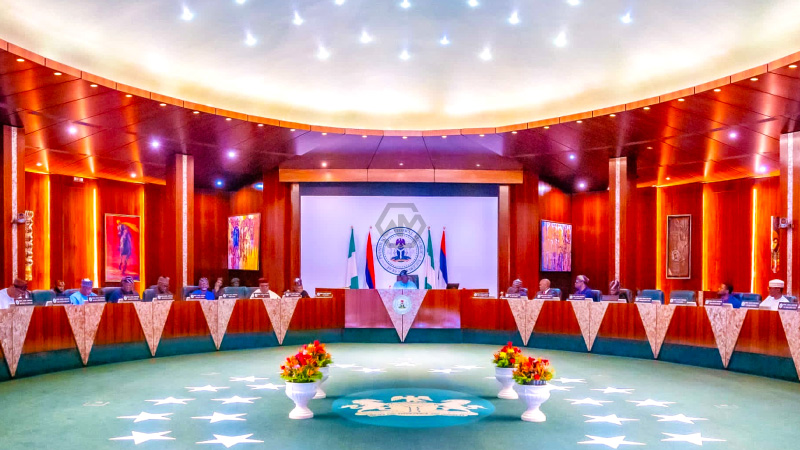- Tinubu forms PECC with Dangote, Elumelu, and Rewane to tackle economic challenges.
- Concerns raised by Peter Obi over CBN’s monetary policies impacting growth.
- Focus on agriculture, energy, and social welfare in a N2 trillion economic stabilization package.
President Bola Tinubu’s inauguration of the Presidential Economic Coordination Council (PECC) marks a pivotal moment in Nigeria’s economic policy landscape, bringing together government officials and private sector leaders like Aliko Dangote and Tony Elumelu.
While stakeholders like Dangote emphasize the need for policies that foster economic expansion, there is a broader recognition of the challenges posed by inflation and the balance between growth stimulation and price stability.
Navigating Nigeria’s Economic Crossroads: Insights from Policy and Industry Leaders
The formation of the Presidential Economic Coordination Council (PECC) by President Bola Tinubu signals a proactive approach to address Nigeria‘s economic challenges, leveraging the expertise of influential figures like Aliko Dangote and Tony Elumelu. Central to the council’s agenda is a comprehensive N2 trillion economic stabilization package targeting critical sectors such as agriculture, energy, and social welfare. This initiative aims to bolster economic resilience and promote sustainable growth amidst global uncertainties and domestic pressures.
However, concerns voiced by Peter Obi regarding the recent monetary policy decisions by the Central Bank of Nigeria (CBN) highlight potential pitfalls. The decision to raise interest rates, criticized for its potential to hinder small business growth and investment, underscores a delicate balance between inflation control and economic expansion. These debates reflect broader tensions within Nigeria’s economic policy framework, emphasizing the need for nuanced approaches that prioritize both stability and growth.
Against this backdrop, industry leaders like Dangote emphasize the importance of supportive policies that stimulate job creation and industrial growth. Their advocacy underscores a unified call for policies that foster a conducive business environment while addressing systemic challenges facing Nigeria’s economy.
As Nigeria navigates its economic trajectory, the collaboration between government and private sector leaders through initiatives like the PECC offers a promising framework for addressing immediate challenges and fostering long-term economic resilience. Balancing the imperatives of growth, inflation control, and sectoral development will be crucial in shaping Nigeria’s economic landscape in the coming years.
“A high interest rate will stifle growth. No jobs will be created because there will be no growth in the economy.”
– Aliko Dangote



